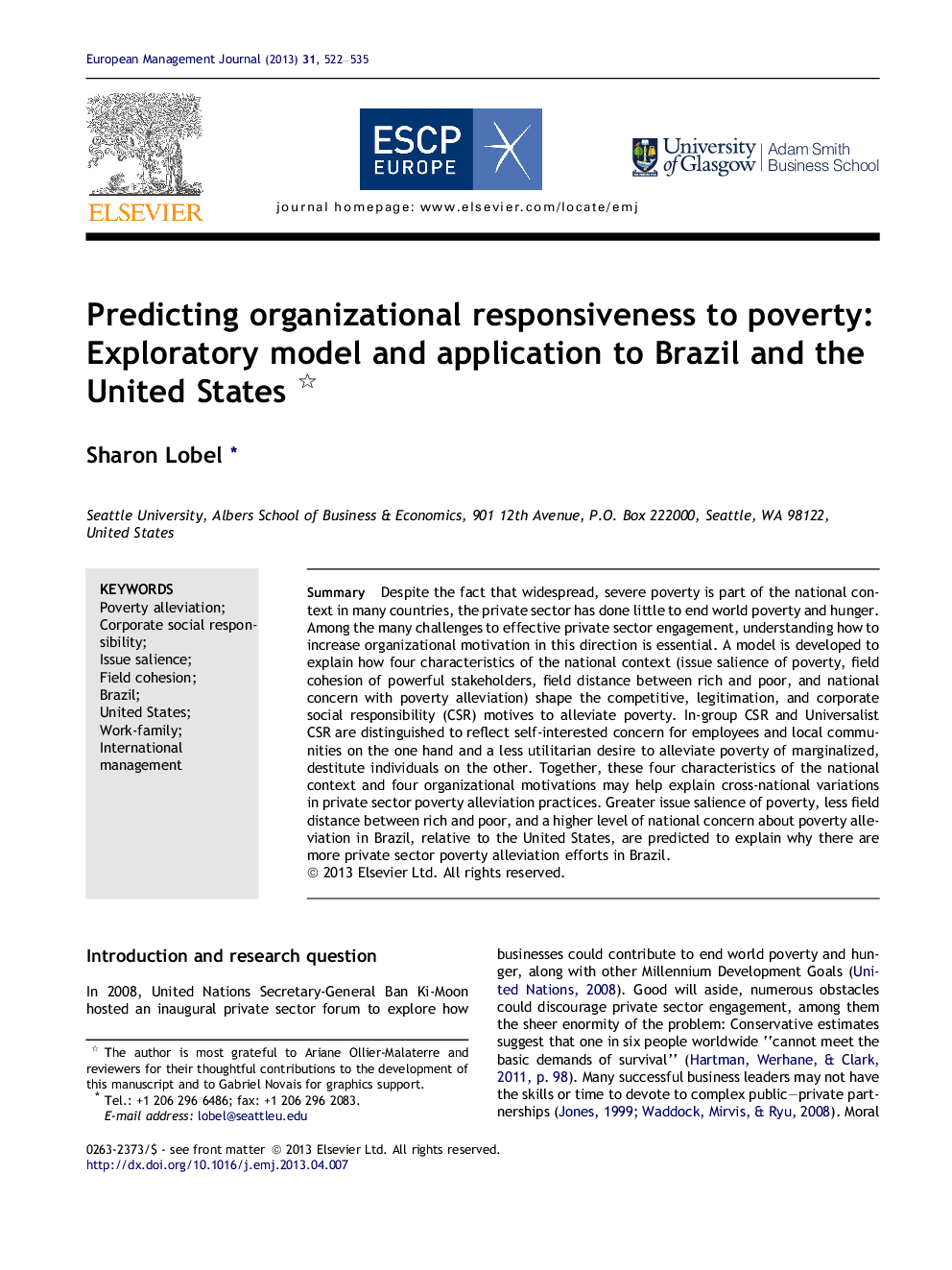| Article ID | Journal | Published Year | Pages | File Type |
|---|---|---|---|---|
| 1014820 | European Management Journal | 2013 | 14 Pages |
Abstract
Despite the fact that widespread, severe poverty is part of the national context in many countries, the private sector has done little to end world poverty and hunger. Among the many challenges to effective private sector engagement, understanding how to increase organizational motivation in this direction is essential. A model is developed to explain how four characteristics of the national context (issue salience of poverty, field cohesion of powerful stakeholders, field distance between rich and poor, and national concern with poverty alleviation) shape the competitive, legitimation, and corporate social responsibility (CSR) motives to alleviate poverty. In-group CSR and Universalist CSR are distinguished to reflect self-interested concern for employees and local communities on the one hand and a less utilitarian desire to alleviate poverty of marginalized, destitute individuals on the other. Together, these four characteristics of the national context and four organizational motivations may help explain cross-national variations in private sector poverty alleviation practices. Greater issue salience of poverty, less field distance between rich and poor, and a higher level of national concern about poverty alleviation in Brazil, relative to the United States, are predicted to explain why there are more private sector poverty alleviation efforts in Brazil.
Keywords
Related Topics
Social Sciences and Humanities
Business, Management and Accounting
Business and International Management
Authors
Sharon Lobel,
